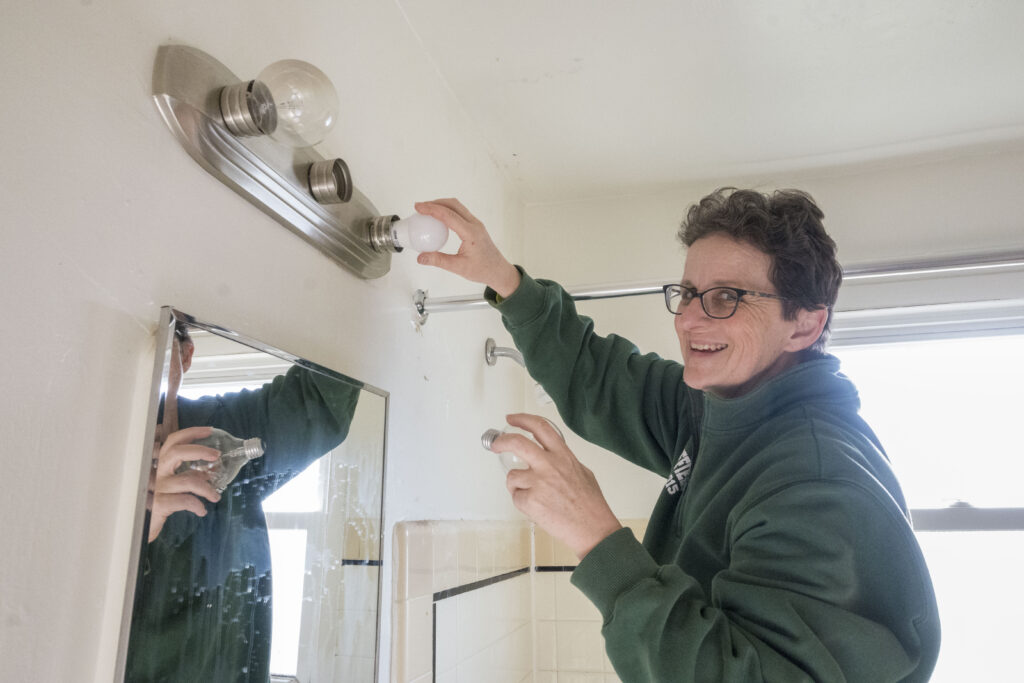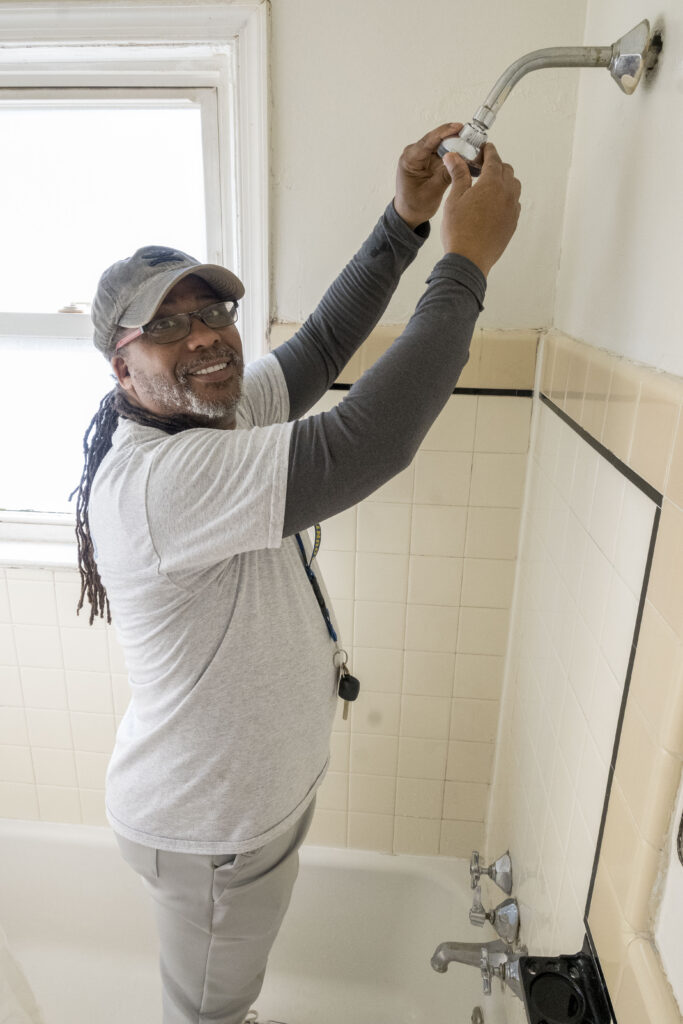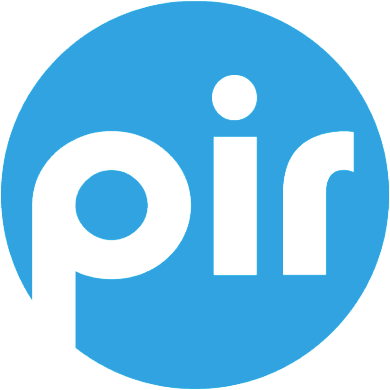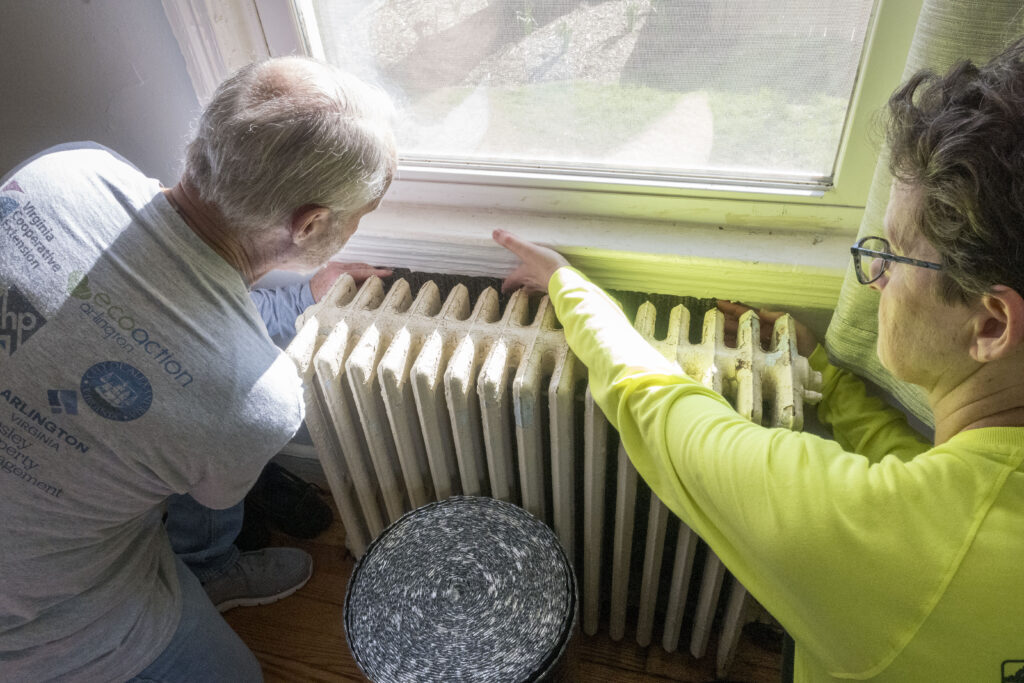For mission-driven organizations, few assets are more powerful – or more challenging to cultivate – than a community of engaged, empowered volunteers. Volunteers bring time, skills, passion, and perspective, and sustaining their involvement requires thoughtful design, meaningful training, and a culture of trust.
Bill Campbell, the coordinator behind EcoAction Arlington’s Energy Masters program, believes that great programs don’t just happen – they are built with intention.
“Having common goals and interests is critical,” he emphasizes. “But it’s also important to respect what each volunteer brings to the operation, and make sure they’re engaged in ways that align with their skills and passions.”
Bill’s approach offers mission-driven organizations across sectors a valuable reminder: when you invest in your people, your people invest in your mission. And with environmental and social challenges growing more complex by the day, volunteer-powered programs can serve as one of the most scalable and cost effective ways to drive community-based change.
Designing Volunteer Programs That Last
So, what makes a strong volunteer-driven program? According to Bill, it starts with three fundamentals:
- Training with Purpose
Volunteers need context to stay connected to the mission. Whether they are installing a lightbulb or sealing a doorframe, they should understand how their actions contribute to broader goals – whether that’s climate justice, public health, or policy change.
- Leveraging Skills, Not Just Time
A retired teacher might be a great fit for tenant education. A bilingual college student could help with translation. A contractor may thrive leading hands-on repairs. The key is to recognize and elevate individual strengths – and let volunteers lead where they shine.
- Making Engagement Accessible and Meaningful
Not everyone can show up every Saturday. Some volunteers may prefer behind-the-scenes roles like lesson plan reviews or advocacy efforts. “You have to create multiple ways for people to plug in,” Bill said. “and make sure they feel valued in whatever role they take on.”
Social events, clear communications, and a little fun – like post-workday meals or community happy hours – can also go a long way in keeping morale high and relationships strong!
A Closer Look: The Energy Masters Program
One of the clearest examples of these principles in action is EcoAction Arlington’s Energy Masters Program.
Launched in 2011, Energy Masters trains volunteers to perform energy- and water-saving upgrades in affordable housing units across Northern Virginia, just outside Washington, D.C. The work includes installing low-flow showerheads and faucet aerators, weatherising doors and windows, replacing outdated lightbulbs, and educating residents on simple ways to reduce utility bills.

But the impact goes far beyond efficiency. “A lot of the families we serve face health issues related to air quality – things like asthma and chronic sickness due to moisture or allergens” Bill explained. “When we improve a home, we are not just saving energy – we are helping kids stay healthy and in school.”
Supported by the Virginia Cooperative Extension, local municipalities, and housing authorities, the program has reached hundreds of low-income households, reducing utility bills, improving living conditions, and preventing thousands of metric tons of greenhouse gasses from entering the atmosphere.
Volunteers often say they’ve applied their new skills at home – and built deeper connections with the communities they serve.
“The volunteers definitely know they’ve helped families,” Bill said. “And they’re often greeted with so much gratitude—it’s incredibly meaningful work.”

Takeaways to Power Your Program
The Energy Masters Program can serve as a model for community-powered sustainability and offers valuable guidance for any nonprofit looking to launch – or improve – a volunteer-led program.
- Start with shared values and lived experience. Understand what drives your volunteers, and co-create opportunities that are aligned with both their passions and your mission.
- Invest in leadership from within. Use experienced volunteers to lead trainings and field work. Peer-led structures build ownership and strengthen your program over time.
- Meet people where they are. Offer flexible engagement opportunities and multiple ways to contribute—onsite, online, hands-on, or behind the scenes.
- Celebrate your people. Consistent communication, appreciation, and a sense of community are vital to sustaining momentum.

In a sector where resources are often stretched thin, the Energy Masters story proves that people-powered progress is not only possible, but deeply impactful. With the right structure and support, volunteers can be a nonprofit’s most enduring force for good. EcoAction Arlington reminds us that sustainable impact doesn’t always require massive infrastructure or investment! Learn more about EcoAction Arlington and the Energy Masters program at ecoactionarlington.org.

